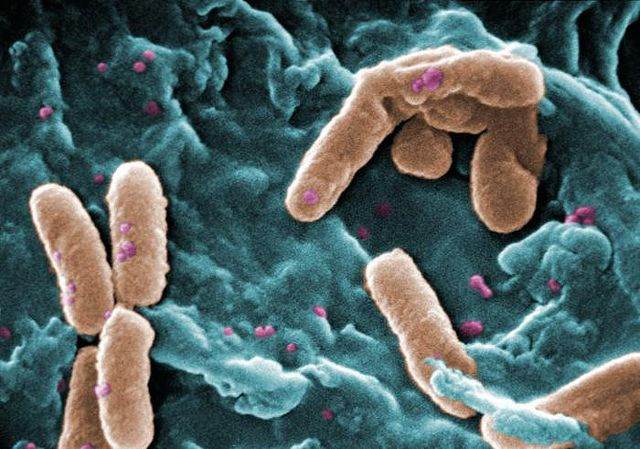Say Hello to the 10,000 Bacterial Neighbors Who Call Your Body Home

That pocket-sized container of hand sanitizer will do little against the large army of bacteria that's currently on you. A new study has mapped out more than 10,000 bacteria that are currently on you.
We are literally crawling with thousands of bacteria. The bacteria that make the human body their home range from the harmless to the deadly if they grow out of control. While this may make your skin crawl thinking of all the tiny organisms that are using your body as a well-equipped mansion, understanding what bacteria are on the body can have a powerful impact on the future of disease research.
It took nearly five years to map out the more than 10,000 bacteria that are a part of the human body. The research was led by the Human Microbiome Project across 16 different scientific publications. The hundreds of researchers examined 242 healthy volunteers from America. The researchers collected tissue samples from 15 body sites in men and 18 body sites in women such as the mouth, nose, skin, lower intestine and vagina.
This microbial world is full of complex interactions with bacteria ranging from harmless to helpful to deadly. Don't worry about the deadly bacteria as there are only a small number of them in healthy humans and they exist side by side with other bacteria and cause no harm. The researchers who mapped out all the bacteria that are living, breeding and even producing waste on your body believe that this information can unlock countless avenues of future research.
Previous studies have linked bacteria to irritable bowel syndrome while bacteria in the mouth have been associated with joint failure and bacteria may play a role in your child's allergies. By knowing the thousands of bacteria that are a part of the human body, researchers could look at interactions between bacteria that may cause disease as well as ways bacteria behave in healthy adults.
In the future, researchers could look at all the bacteria in a healthy human to better understand what role certain bacteria play in diseases such as Type 1 diabetes, obesity or Crohn's disease. While this is the conclusion of five years of hard work it's only the beginning for researchers as they look at what role the over 10,000 bacteria play in disease and everyday life.
The study was published in Nature as well as PLoS ONE.
Published by Medicaldaily.com



























